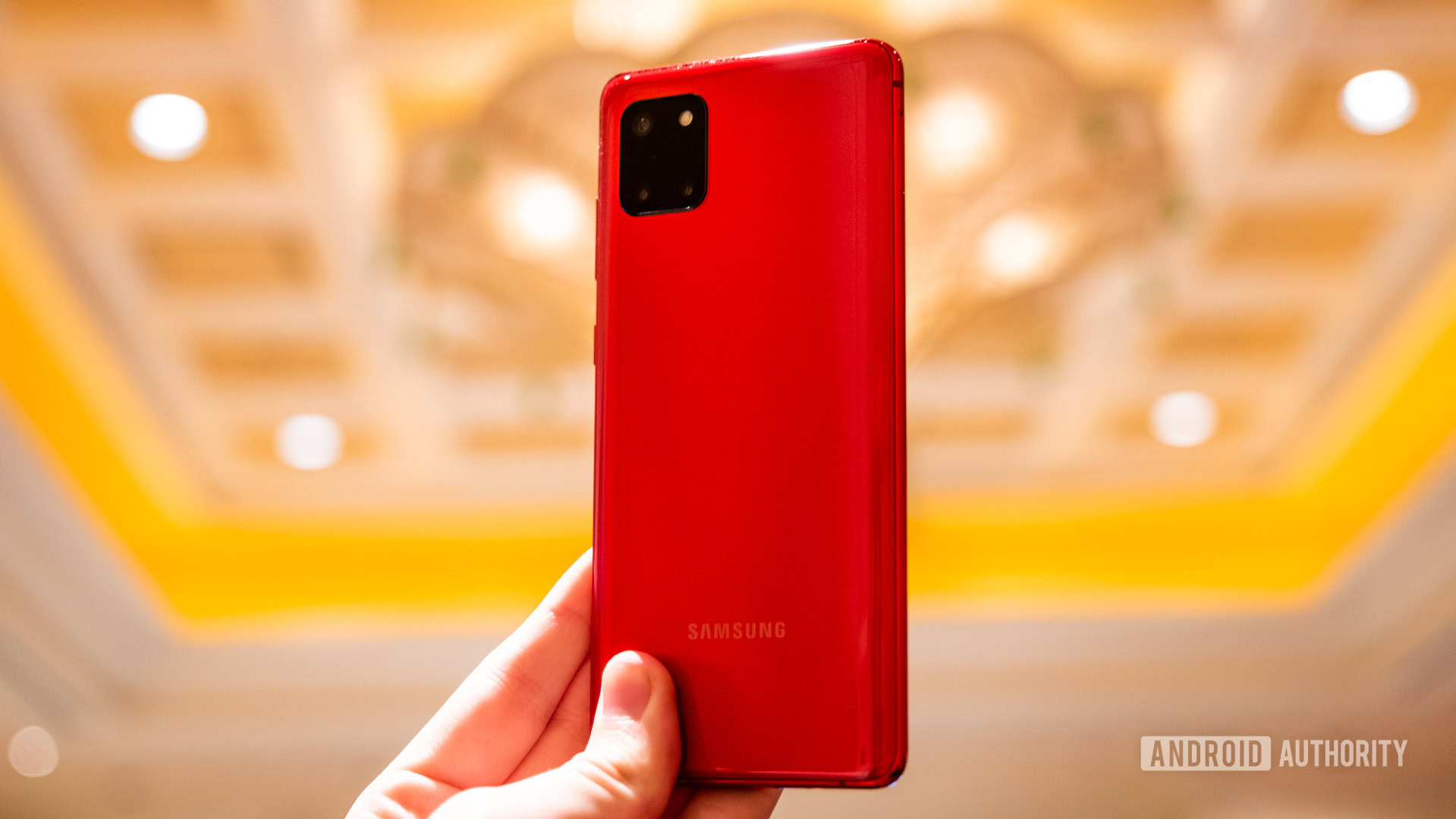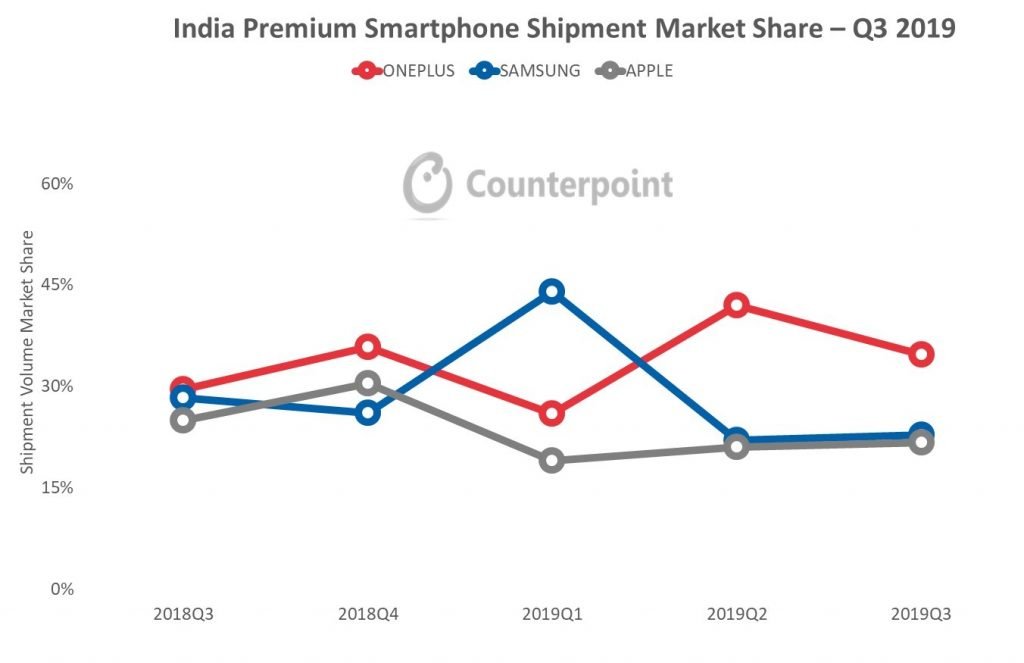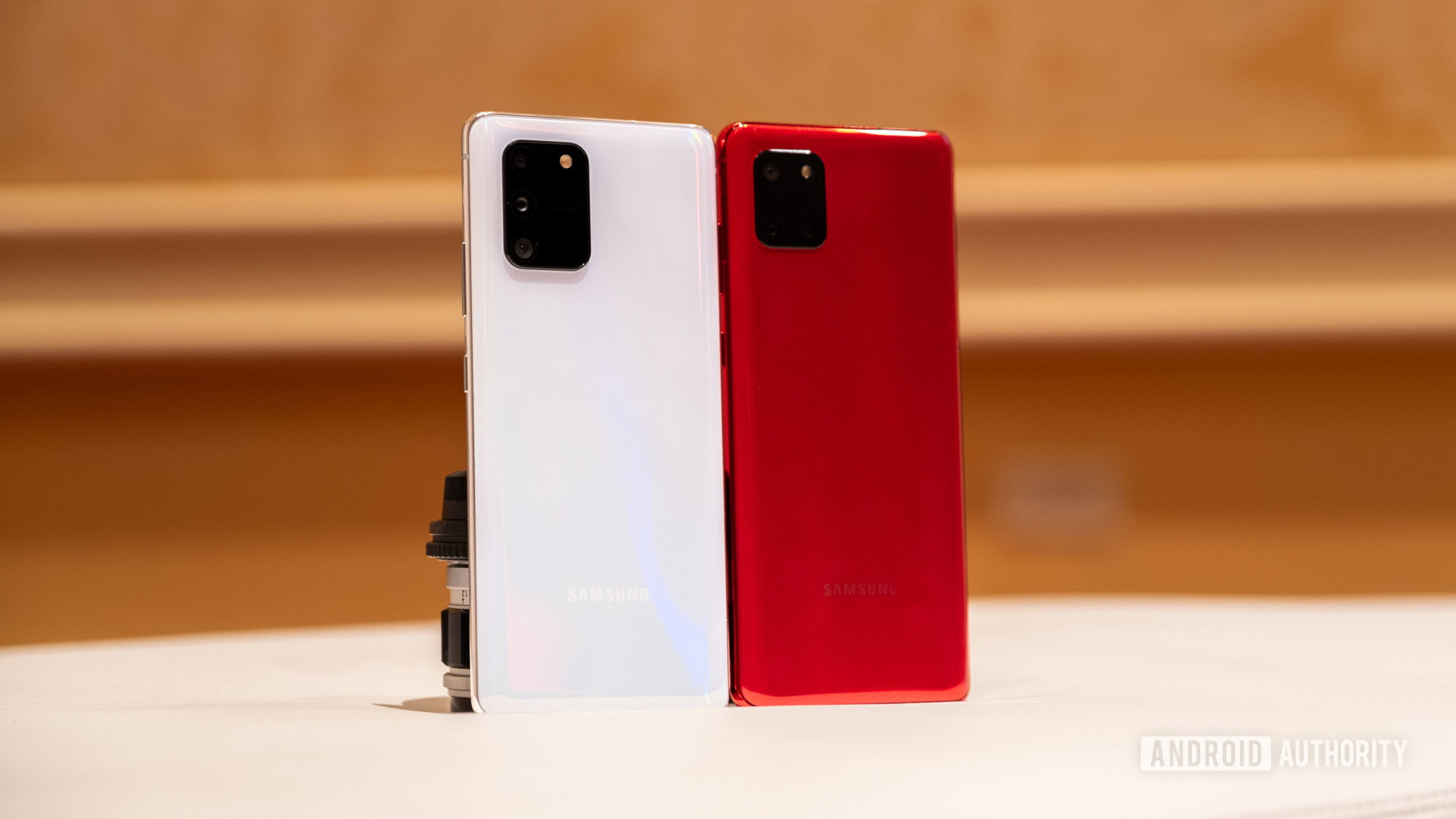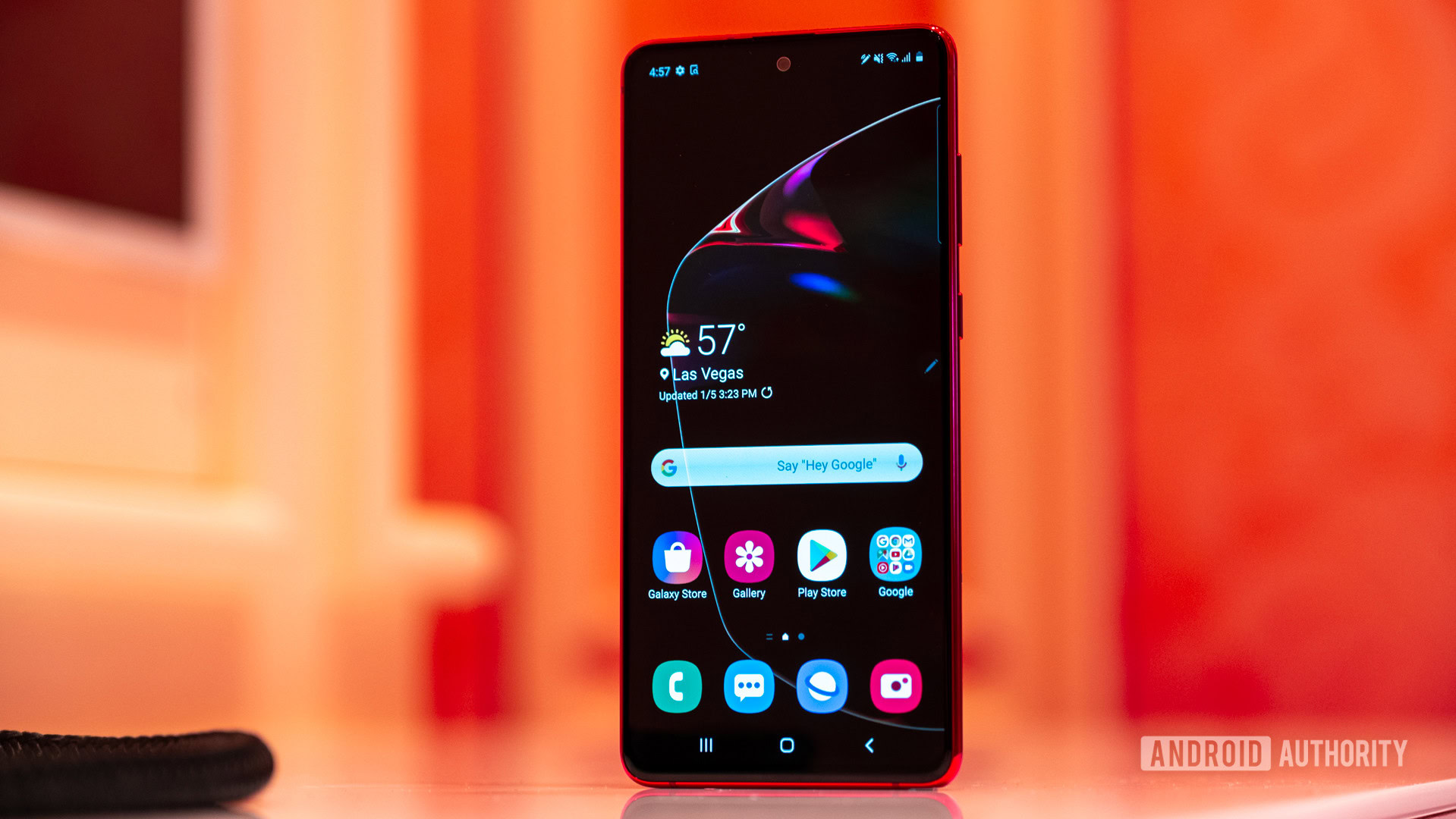Affiliate links on Android Authority may earn us a commission. Learn more.
The Samsung Galaxy Note 10 Lite is a serious threat to OnePlus in India

2019 was a mixed bag for Samsung, both globally and in India — a market it once dominated. From the M-series to the A-series, Samsung took the mid-range competition head-on and challenged the likes of Xiaomi, realme, OPPO, and vivo. Finally, a concerted effort at regaining its lost foothold in the mid-range segment paid off for the company.
Samsung’s market share in the mid-range segment grew 3% quarter-on-quarter on the back of a range of well-rounded phones like the Galaxy A30s, M30s, and more. Samsung’s share of the premium segment in India, however, registered minimal growth.
There is a significant gap between premium segment market leader OnePlus and Samsung. This number grew further in Q3 2019. Earlier on in the year, price cuts on previous-generation models and the launch of the S10 series gave Samsung a nice boost in the lucrative premium segment. However, sales came tumbling down quickly and it wasn’t till later in the year with the launch of the Note 10 series that the company was able to regain a few more percentage points.

OnePlus, on the other hand, has shown no signs of slowing down. With a 35% hold on India’s premium smartphone market, OnePlus managed to grow its market share by 100% year-on-year. Contrast this with Samsung’s 23% market share in Q3 2019, and it is easy to see why the company is eager to expand its premium portfolio.
It certainly helps that the premium smartphone segment is one of the fastest-growing segments in India. Counterpoint Research reports that the $400+ market segment grew by 66% year-on-year, largely off the back of OnePlus’ success.
Now, with the one-two punch of the OnePlus 7T and OnePlus 7T Pro, the company has managed to diversify its options and increase its potential audience even further. Samsung had to do something, and the Note 10 Lite is positioned to counter exactly that threat.
The Note 10 Lite: A phone from the OnePlus playbook
There’s no question that the Samsung Galaxy Note 10 Plus is a great phone that gives you all the power, and features, that you could need. It also costs north of $1,100, however. At Rs. 80,000 in India, that’s a big ask for buyers in a market fueled by devices with impressive price-performance ratios.
Meanwhile, the top-end OnePlus 7T Pro costs Rs. 53,999 (~$750) and offers much of the same core experience, minus the stylus input. Add to that the increasing focus on premium design with the 7T and Pro lines, feature additions like waterfall displays and pop-up cameras, and the relentless marketing, it is easy to see why OnePlus has emerged as a very popular option for anyone wanting a flagship without paying top-tier prices.

Samsung’s Note 10 Lite copies a lot from the OnePlus playbook. Between the large AMOLED display, S Pen, headphone jack, Samsung Pay, and most importantly, Note branding, this phone is designed for everyone who wants a flagship Samsung phone without the premium price tag.
Some obvious concessions have been made to hit the price point. The plastic build, flat display, and an older-gen processor certainly don’t scream out 2019 flagship. However, there is a very distinct difference between the audience that OnePlus and Samsung cater to. The former’s demographic is a technically savvy audience that knows its hardware in and out, cares about specifications, and is extremely value-conscious. On the other hand, Samsung is selling an experience built on its brand prestige.
The Note 10 Lite is designed to counter the one-two punch of the OnePlus 7T and OnePlus 7T Pro
For most users, a year-old flagship chipset isn’t going to matter at all. Add to that marketing muscle and offline sales networks and an intrinsic premium-perception that the Samsung Galaxy name carries, the Note 10 Lite has the potential to do gangbuster business for Samsung. The large 4,500mAh battery and Samsung’s generally excellent imaging set up won’t hurt sales either.
The Note 10 Lite enters a space that isn’t entirely bereft of options. The 30,000 to 40,000 rupees category of phones is certainly dominated by OnePlus, but the Redmi K20 Pro, OPPO Reno 2, and even the Black Shark 2, showed that there is enough room for competition to grow. What those phones don’t have, though, is the brand cache that Samsung carries.
Optics matter

Brand loyalty goes a long way towards guaranteeing a sale, even in India. A recent study by KPMG (h/t Economic Times) reaffirmed that over 55% of buyers in India would remain loyal to a preferred brand even if it was more expensive than a rival product. The Note 10 Lite offers a perfect in-between upgrade path for customers who want to upgrade from an existing mid-ranger, but don’t want to splurge top-end prices. It is also one of the very few affordable options available to stylus enthusiasts without having to opt for an older device.
It's all about the optics of making a mid-tier phone look like a flagship series offering.
Optics matter and Samsung isn’t portraying the Note 10 Lite as a cut-down mid-tier option. Indeed, Samsung wants users to see Note 10 Lite as a value flagship which makes some not-too-critical compromises to hit that price.
We’ve previously discussed the merits and potential market for the Note 10 Lite (and the Galaxy S10 Lite), and some questions still remain. With respect to product positioning, both phones err close to existing alternatives from Samsung, most notably at the upper-end of the A series. This is especially true in Europe where there are already plenty of options if you want a more affordable flagship from a bunch of brands.

In India, though, priced at Rs. 38,990 (~$550) and Rs. 40,990 (~$575) for the 6GB RAM and 8GB RAM variants, both the Note 10 Lite offers strong competition for the OnePlus 7T. The S10 Lite also falls into a similar category, but the Note 10 Lite comes out on top thanks to its unique stylus-enabled feature set and more traditional main-wide-zoom triple camera setup.
As OnePlus tries to climb up the value chain, other brands are wisening up to the merits of offering value-priced alternatives. The Note 10 Lite is likely just the first of many more options in the hot $500-$600 space, but Samsung has made a smart move to strike early as it looks to claw back some of its former glory in India.
What do you think of the Note 10 Lite? Is it the perfect mid-way between an affordable phone and the full-blown flagship experience? Does it offer-up enough to make you sway away from OnePlus phones? Let us know in the comments section.